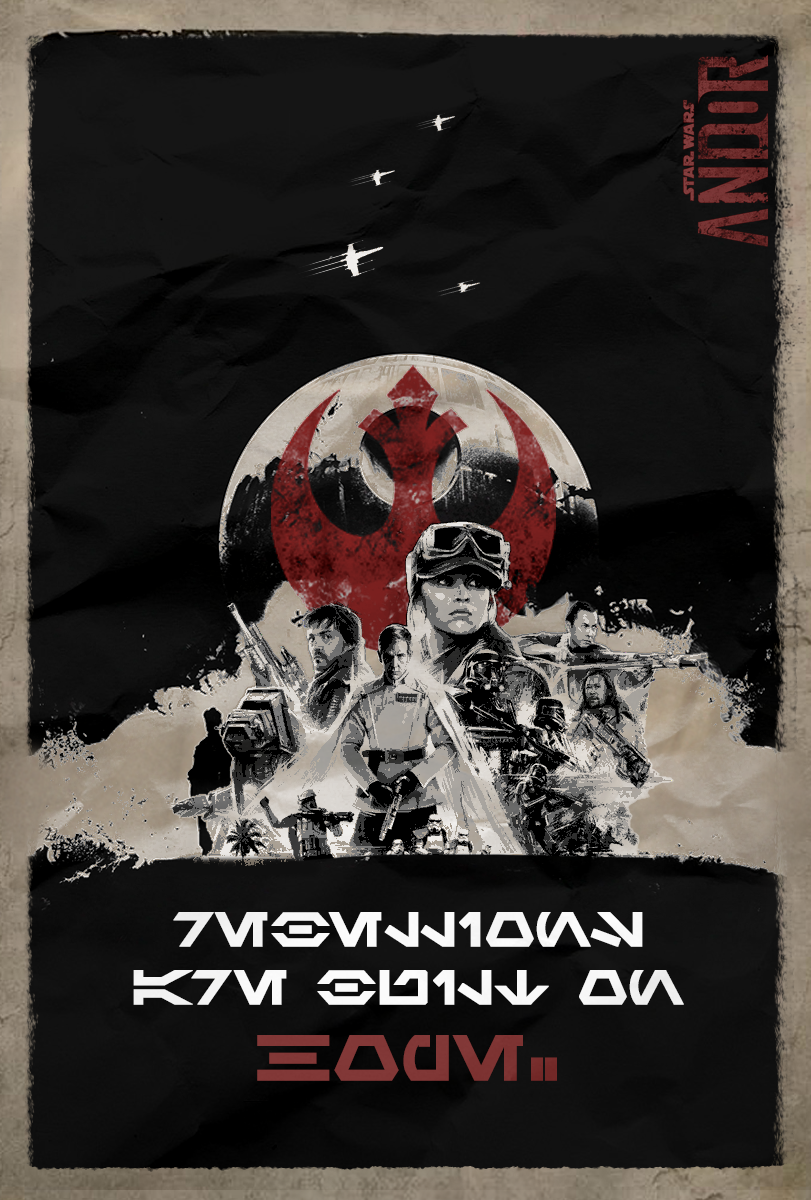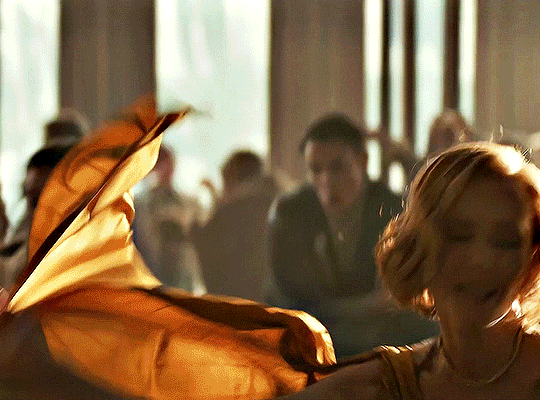Like many people, I recently finished the extremely-good second season of Andor. It’s one of those shows that you can confidently say is a must-watch even to people who aren’t Star Wars fans, particularly in the current political climate. I avoided it for a while because the thing about prequels is, sometimes you have to go into them knowing that bad things are going to happen to characters you love, but sometimes the storytelling makes it worth it (see also: the Hunger Games prequels).
When I finished, I bounced immediately on and re-watched Rogue One, and was struck by how carefully and largely seamlessly the Andor team had lined their show up to meet the beginning of a movie that had been filmed a full decade earlier. But even though they stitched together beautifully, tonally Rogue One is a completely different experience. It’s a film designed to sit in the swashbuckling universe of the original trilogy — with Vader mouthbreathing over the Imperial March — whereas Andor is something grittier and more determined.
So I was absolutely intrigued to discover that a fan had recut and rescored Rogue One into a three-episode Andor arc. What’s left is something tighter, more paranoid, more grounded. Something that asks: what if the vibes were different?

We’ve talked before about fanvids and vidders. Fan edits are a related but very different beast, and while fan editing is very obviously a kind of transformative fandom, the demographics of the fans involved and the work they undertake puts them outside (and sometimes at direct odds with, as I’ll get to in a moment) traditional transformative fan communities.
Fan editing is a labour-intensive, painstaking art-form. Fan edits are not just a bit of trimming — they're full reconstructions of the original film, often frame by frame, with new sound design, colour correction, and restructured story arcs. It can take hundreds of hours and the tools are the same as the pros use. It’s closer to post-production than fanfic — just without the budget, the studio, or anyone saying no.
The first fan edit to really break into the mainstream was also a new cut of a Star Wars property — a reedit of episode one The Phantom Menace, called The Phantom Edit back in 2000. It came about at a time when digital file-sharing was just starting to take off, and copies of the film could be found on KaZaa.
It's no secret that many of the most passionate "Star Wars" devotees — the kind of people who think nothing of wearing Darth Vader masks in public — were disappointed by "The Phantom Menace." The loudest complaints concerned Jar-Jar Binks, a loquacious, computer-generated alien who was widely deemed the most tiresome entity ever to appear on a movie screen. Another source of fan wrath was the young Darth's exclamations of "yahoo!" and "whoopee!," which were deemed too inane for a future Dark Lord. The Phantom Editor neatly trimmed the roles of both the gibbering alien and the annoying kid.
As this article at the time noted, the very same revolution in cheaper computing power and accessible editing tools that made Lucas’ prequels possible, also empowered the fans to re-edit his work however they saw fit. Now that digital copies of films are readily available, any media property is ripe for a re-cut.
Fan edits obviously operate in the greyest of grey areas when it comes to copyright law. Visit homes like r/fanedit or fanedit.org and you’ll find very explicit rules for these communities. Editors must own a legitimate copy of the source material they’re using; noone should post or request links to the fan edits in public.
Because fanediting involves the use of copyrighted material, the staff of this site take protecting the rights of copyright holders seriously. While the site's position is that fanediting is protected under Fair Use copyright laws, we recognize that fanediting is built upon the hard work of those who make the original films and content, and as such our site enforces rules to help ensure that copyright holders are never cheated out of revenue. Fanedits are not-for-profit and should only be obtained if you own the sources which comprise the edit.
But if you want to, you can watch a slimmed-down, pacier, single-movie version of The Hobbit, a version of Breakfast at Tiffany’s flawlessly edited to remove Mickey Rooney’s racist character, or a less goofy version of Thor: Love and Thunder:
When I watch just a one off movie, and it's bad, I just don't ever watch that movie again. But, if I see a movie that is part of a franchise that I love, and it is bad, I feel like I need to fix that movie and make it fit into my rewatches of the series. The latest, Thor: Love and Thunder.
Fan editors are not just polishing a film to make it sleeker or more palatable. They’re re-seeing it, sometimes through the lens of later canon, sometimes through personal politics, sometimes just through better music. The original creator’s intent becomes just one layer among many. The edit becomes an argument.
And so, fan edits can also reveal the reactionary edge of fandom. In 2019, a user posted a so-called “De-Feminized Fan Edit” of Avengers: Endgame — stripping out nearly every scene involving women, people of colour, or emotional vulnerability. It was less a fanwork than a manifesto, expressing disdain not just for characters but for the values they represented. Something I talked about at length here.
Or perhaps you might be in the market for the Barbie “Kenough” edit:
A film about growing up. Let's also grow up in regards to feminism and treat men with a little more respect. It's a subtle thing and won't be necessary for many men, but for others who feel a bit set-upon, this should be a much more pleasant watch.
Poor men.
The Rogue One/Andor edit does something subtler. It doesn’t try to “fix” the movie so much as reroute it — stylistically and tonally — to better align with the world Andor constructed. It's a remix that treats Nicholas Britell’s score as the dominant canon, and Rogue One as the fanwork. And as its creator notes, this isn't about elevating the original: “the movie is still the movie.” But in a post-Andor world, some parts of that movie feel newly resonant. The fan edit simply tunes the frequency so we can hear it.

What’s striking to me is that this work lives in a kind of fandom inbetween place — not fanfic, not meta, not even a traditional fanvid. But it sits at the intersection of all three. It’s curatorial and transformative. It’s for the fans who say, “I love this thing, but would like it in this very specific register.”
And if you're someone who jokes about being an Andor fan more than a Star Wars fan, this edit gets it. Not because it changes the facts of the story — but because it reminds you how much the way you tell a story matters.
(bonus: a great interview with Diego Luna)
more good stuff
an excellent LEGO implementation of a top-shelf meme:

a good take over at Garbage Day about how the new Harry Potter series is too toxic for the fandom hype cycle.
for years now, Casey Fiesler has been creating social media (largely on TikTok and Instagram) about artificial intelligence, especially as it relates to ethics, policy, and social impact. She’s now pulled all these short videos together into a syllabus of sorts — “a post-hoc curated collection of videos that provide introductions, examples, and deep dives into various concepts”. An amazing free resource.
finally, in my lego city

Forward this to someone for their weekend read.
You just read issue #24 of what you love matters. You can also browse the full archives of this newsletter.

Add a comment: